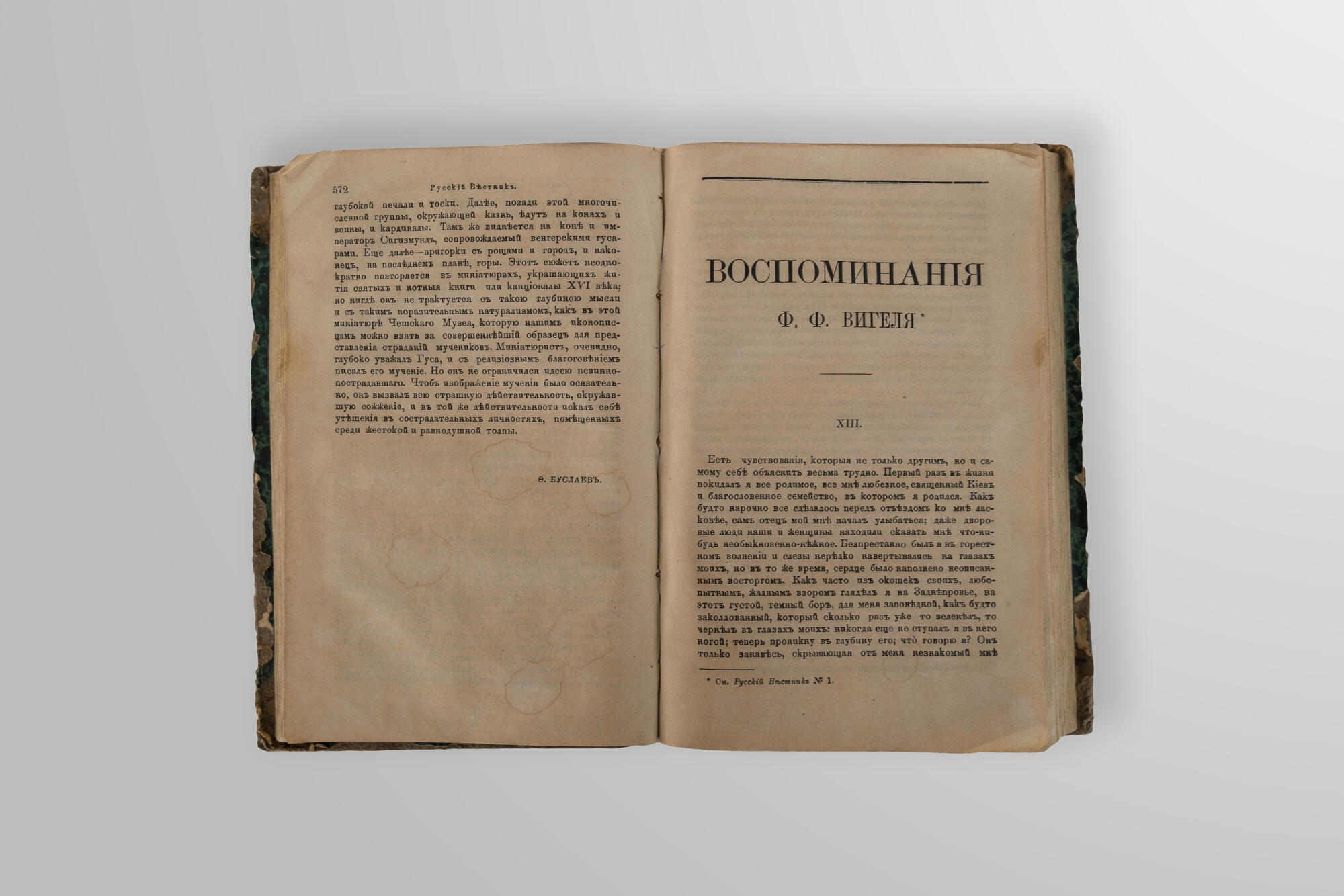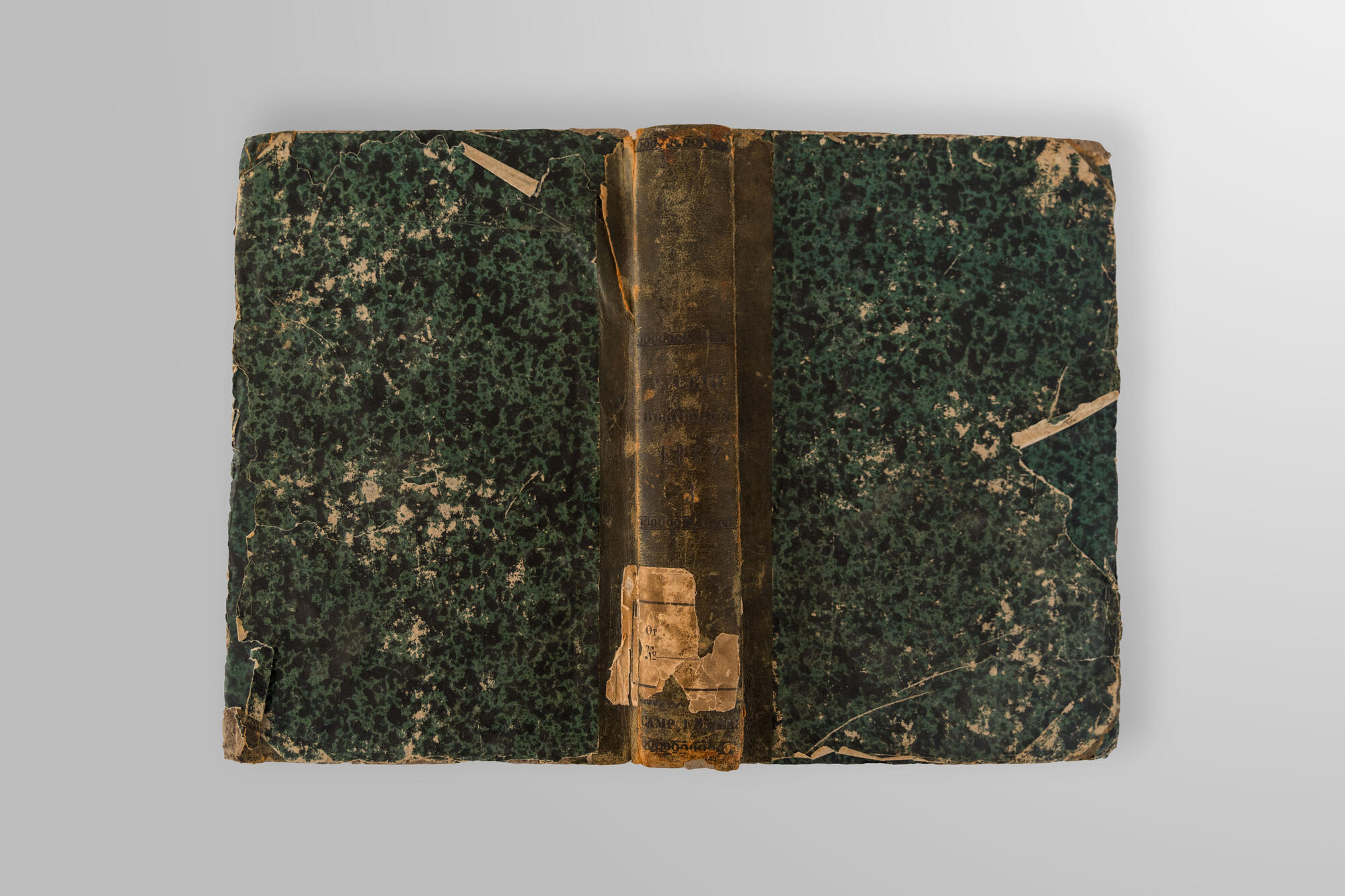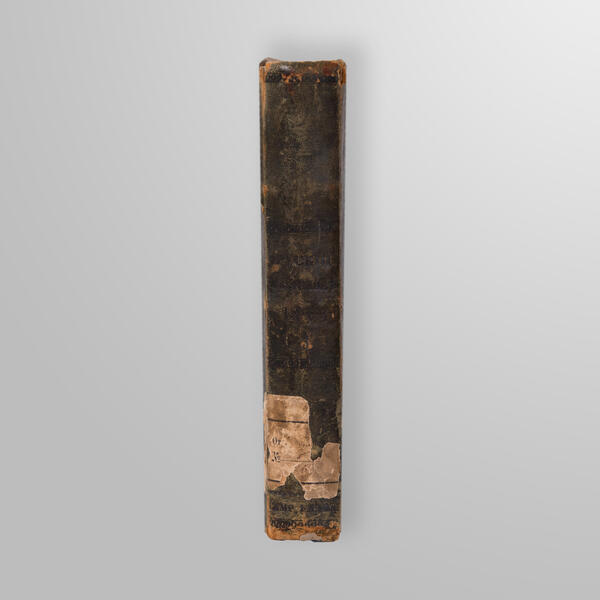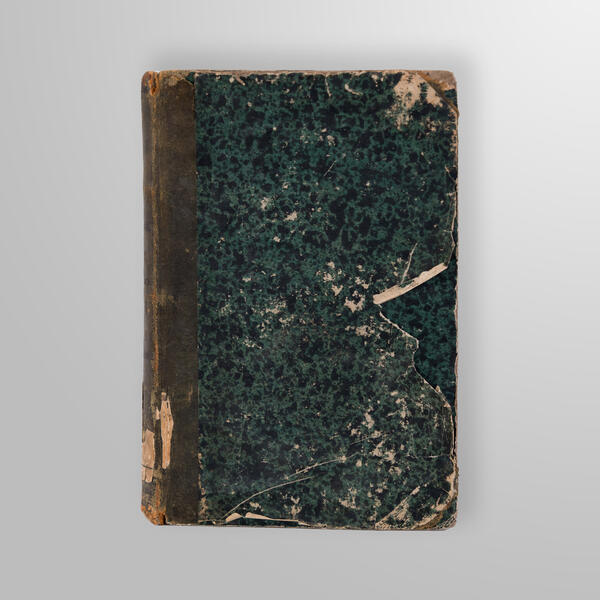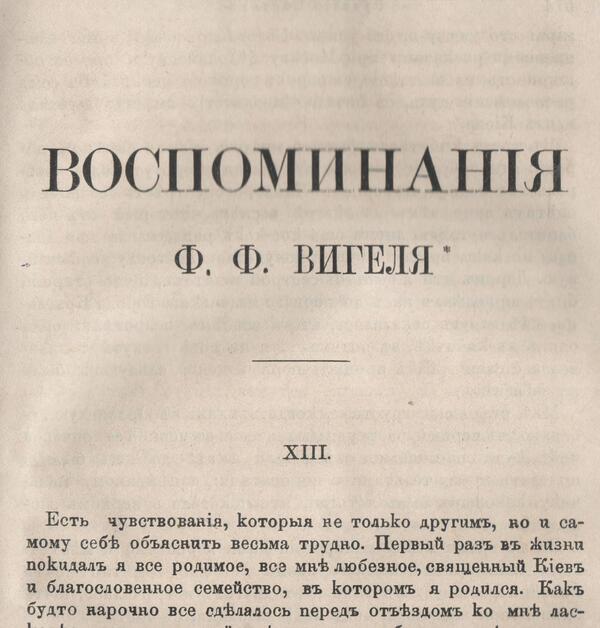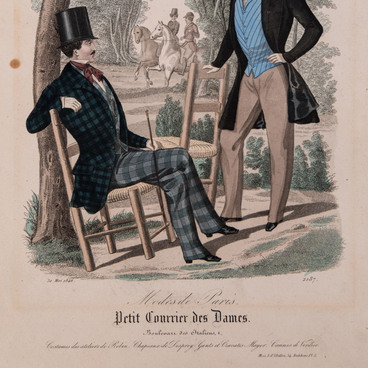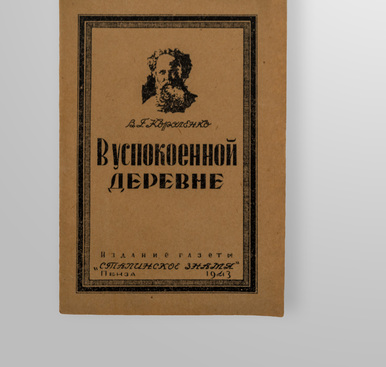Filipp Filippovich Vigel was born in the village of Simbukhovo, Penza Uyezd. His father served as local governor in the early 19th century, and his mother came from an ancient Penza family of the Lebedevs. Filipp Vigel had a successful career: having started out as a clerk at the Archive of the Collegium of Foreign Affairs, in the 1820s he served as vice-governor of the Bessarabia Governorate and mayor of Kerch. In his later years, Vigel was awarded the rank of Privy Councilor as director of the Department of Religious Affairs and Foreign Denominations.
Both Vigel’s contemporaries and later researchers pointed out his paradoxical personality, combining contradictory traits, including acrimony, narcissism, great observation skills, knowledgeability, and intelligence. Pyotr Vyazemsky wrote that despite having never experienced great adversity, Vigel “was unhappy with himself and by himself.” Alexander Pushkin described Vigel as “an entertaining and competent conversationalist.”
Filipp Vigel became famous for his memoirs where he described his life up to 1828. The book was praised as “a curious and valuable contribution to literature describing Russian people and life.” Contemporaries said that the memoirs were both bitter and fair.
Pyotr Vyazemsky wrote that the author “displayed a propensity to bear grudges but also created vivid stories and portraits.” He also suggested that readers should treat the stories with a certain degree of skepticism since they contained inconsistencies and anachronisms and were largely based on “hearsay”. At the same time, the memoirs were distinguished by an all-round and informative description of political, literary, and social life and became an important source for researchers studying the Russian Empire and especially the Penza Governorate of the 18th and 19th centuries.
Without ignoring some of Vigel’s biased and harsh statements, the local historian Alexander Selivanov praised the writer for exploring a wide range of topics, including family affairs, public service, contemporary society, theater, and literature. Particularly valuable is Vigel’s portrait gallery in which he described both prominent statesmen and his acquaintances, including Ivan Krylov, Alexander Turgenev, and Andrey Turgenev, members of the Arzamas Literary Society.
“Memoirs of Filipp Filippovich Vigel” were first published in the Russky Vestnik (Russian Messenger) magazine in 1864–1865. In spite of significant omissions from the text, the memoirs faced severe criticism. In 1891–1893, Vigel’s “Notes” appeared as an appendix to seven issues of the Russky Arkhiv (Russian Archive) journal.
In the 20th century, Filipp Vigel’s memoirs became a rarity.